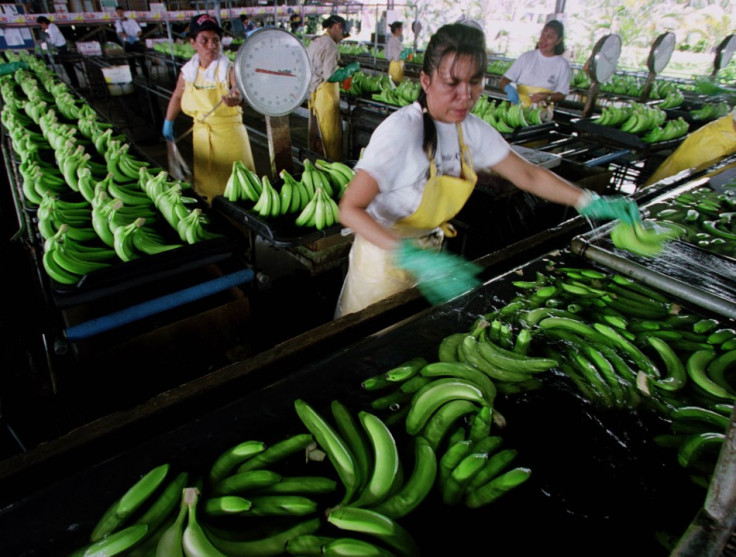Bananas could disappear from UK supermarket shelves as deadly 'Panama disease' returns
The world's most popular fruit - worth $25bn a year in global sales - is under attack from a virulent fungus.

Bananas could disappear from UK shelves as the world's most popular fruit comes under attack from the deadly 'Panama disease'.
A new strain of the virulent fungus, known by scientists as "Fusarium Oxysporum", has devastated crops across Australia and south east Asia, and is now spreading to Africa and the Middle East.
Experts fear that Latin America and the Caribbean are next in line to fall prey to the disease. Both are key exporters to European markets.
The $25bn a year global banana industry is under pressure. In the UK alone over five billion of the best-selling fruit in the country are eaten a year.
The latest strain of this fungus has been labelled True Race 4 (TR4), and was first detected in Africa and Australia in 2015 and again in 2017.
This comes almost 70 years after the first recorded cases of the Panama disease in the 1950s.
The fungus lives in the soil and attacks the roots of banana trees before spreading through rest of plant, causing the fruit to wilt. It also produces spores that survive in the soil for decades, rendering land unusable for non-resistant crops.
This led the industry to ditch the previously dominant Gros Michel banana, which was susceptible to the disease. Plantation owners turned to the Cavendish banana, which is longer and not as sweet, but until recently has proved resistant to the fungus.
However, over the last two years the new TR4 strain of the fungus has attacked Cavendish bananas and its variants, which make up the vast majority of the 17 million tonnes a year of bananas exported globally.
Drastic changes needed
Unions argue that Cavendish bananas are now under attack because years of industrial-scale plantation monocultures are "destroying worker health, the natural environment and local communities".
The GMB said: "Britain's favourite fruit could disappear from supermarket shelves unless drastic changes are made to global production methods."
Speaking today (8 October) from the World Banana Forum in Geneva, GMB international officer Bert Schouwenburg said: "Our sister trade unions tell us that producers are desperate to prevent 'Fusarium RT4' disease spreading to Latin America from other parts of the world.
"However, unless there is a fundamental shift in production methods, away from exploitative, environmentally destructive plantation mono-culture, it is only a matter of time before the disease takes hold with devastating consequences for exports to Britain and Europe.
"The system for the production and trade of dessert bananas is little more than a house of cards built on the shaky foundations of monoculture and genetic uniformity. This house of cards threatens to collapse at any moment."




















